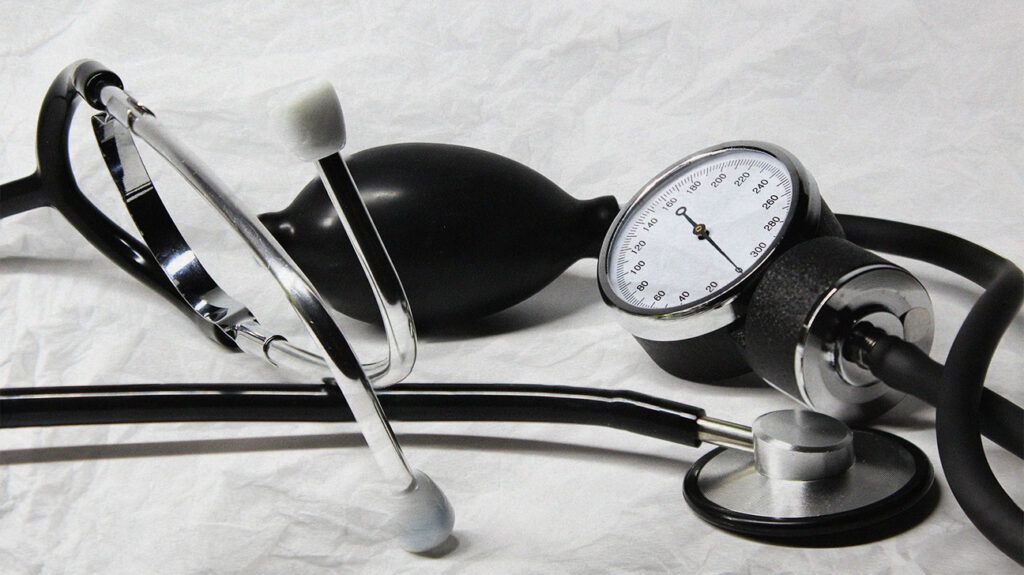Septic shock is the most severe complication of sepsis, which is a reaction to an infection. A person with sepsis may go into septic shock, which can cause organ failure and other life threatening complications.
Sepsis occurs when the immune system produces an extreme and overactive response to an infection, which can lead to organ failure and tissue damage.
When someone with sepsis has low blood pressure that does not respond to fluid treatment, the body has gone into septic shock. This stops blood from flowing sufficiently and prevents vital organs from receiving enough oxygen.
This article compares sepsis and septic shock.

Sepsis occurs when the body has an extreme, dysfunctional response to an infection.
The immune system in a person with sepsis releases chemicals into the bloodstream, which can attack and damage the tissues and organs in the body.
Sepsis is a medical emergency and can be fatal.
The symptoms of sepsis
- severe pain or discomfort
- shortness of breath
- a rapid heart rate and breathing
- fever and chills
- disorientation and confusion
- sweaty or clammy skin
Septic shock is the
It is the last stage of sepsis, in which a person’s blood pressure is very low and will not respond to treatment with intravenous (IV) fluids.
People who go into septic shock will experience the symptoms of sepsis, as well as hypotension, the medical term for low blood pressure.
Sepsis may progress toward septic shock. There are three stages of sepsis.
- Sepsis: An extreme, dysfunctional immune response to a viral, bacterial, or fungal infection, which causes rapid breathing and heart rate and a fever.
- Severe sepsis: Sepsis progresses to severe sepsis when organ damage results from low blood pressure or inflammation.
- Septic shock: Septic shock is the most severe stage of sepsis and involves very low blood pressure that does not respond to IV fluid treatment. This prevents blood from carrying sufficient oxygen to vital organs and can be life threatening.
When a person goes into septic shock, their blood pressure becomes too low to pump blood throughout the body effectively.
This can cause organ failure, as the vital organs and tissues in the body do not receive sufficient oxygen to function.
In the early stages of septic shock, doctors may be able to reverse the effects of the condition with fluid treatment and medication.
However, if septic shock continues without treatment or does not respond, it may become irreversible, leading to multiple organ failure and death.
Around
Septic shock may also lead to several life threatening complications.
Septic shock can result in various severe and life threatening complications.
Complications of septic shock may
- multiple organ failure
- acute or chronic kidney injury
- acute liver failure
- myocardial dysfunction, which can lead to heart failure
- mesenteric ischemia, a decrease or block in blood flow to the intestines
- disseminated intravascular coagulation (DIC)
- acute respiratory distress syndrome (ARDS)
A person who has gone into septic shock requires immediate emergency medical treatment. Delays in treatment
Doctors may treat septic shock with medications,
- antibiotics to treat bacterial infections
- corticosteroids to reduce inflammation and help lower blood pressure
- vasopressors to help maintain blood pressure
Doctors may need to place a person on a ventilator to help them breathe. They may also perform surgery to remove infected or dead tissue, which may be the cause of the infection.
The outlook for septic shock can depend on a variety of factors, which include:
- a person’s age
- the medication a person takes
- a person’s overall health
- whether a person has comorbidities
- whether a person requires ventilation
- a person’s kidney function
- the type of organism that causes the infection
- the number of organs affected by septic shock
- a person’s sensitivity to antibiotics
Septic shock has a high mortality rate of
According to the
- getting the recommended vaccines to help prevent various infections that may lead to sepsis
- treating and monitoring various health conditions, such as kidney disease, diabetes, and lung disease
- practicing good hygiene by washing hands frequently
- keeping cuts covered and clean until they have healed
- being aware of the signs and symptoms of sepsis
- seeking immediate medical assistance if symptoms of sepsis occur
Sepsis and septic shock are severe, life threatening conditions that require emergency medical treatment.
Sepsis occurs when the immune system produces a dysfunctional and extreme reaction to infection, which causes rapid heart rate and breathing. The condition can progress into severe sepsis, which causes organ damage, and septic shock.
In septic shock, a person’s blood pressure is very low and may not respond to IV fluid treatment. This can lead to a lack of oxygen reaching organs, which can result in death.
Anyone who has symptoms of sepsis should seek urgent medical attention, as delays in treatment can increase a person’s risk of septic shock and death.
Practicing good hand hygiene, getting the recommended vaccines, and treating existing conditions can help reduce the risk of sepsis.
